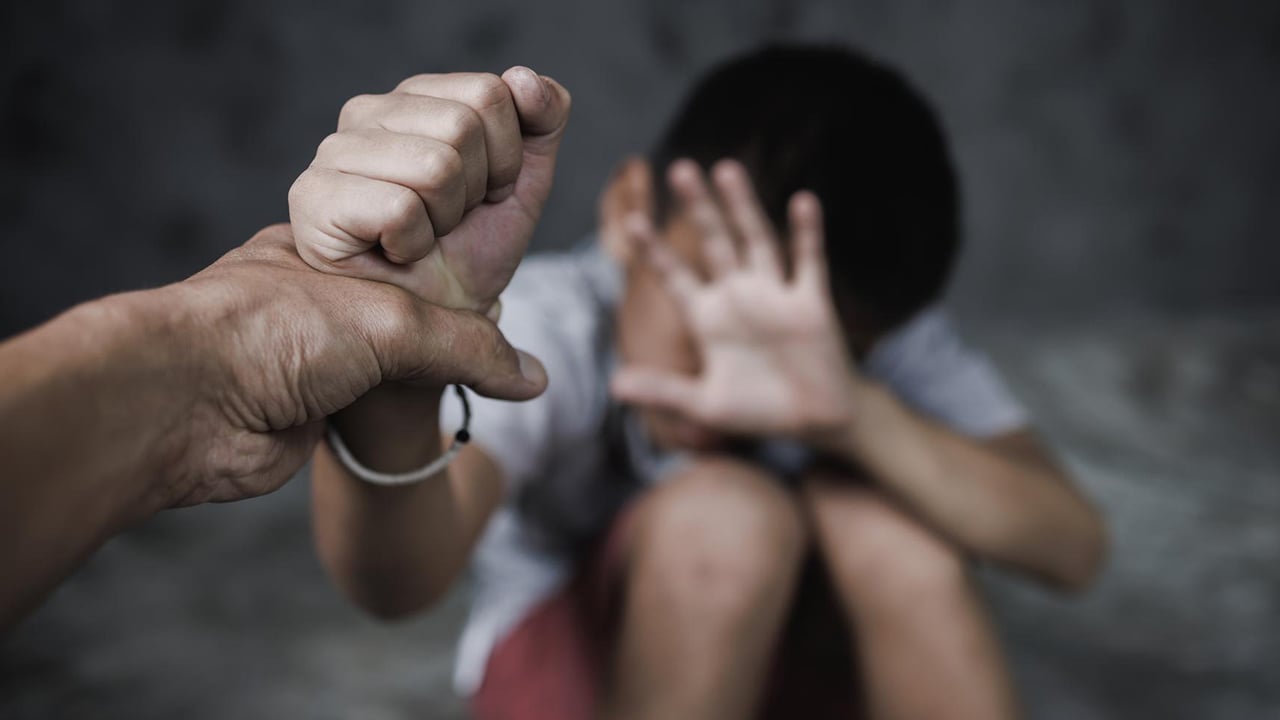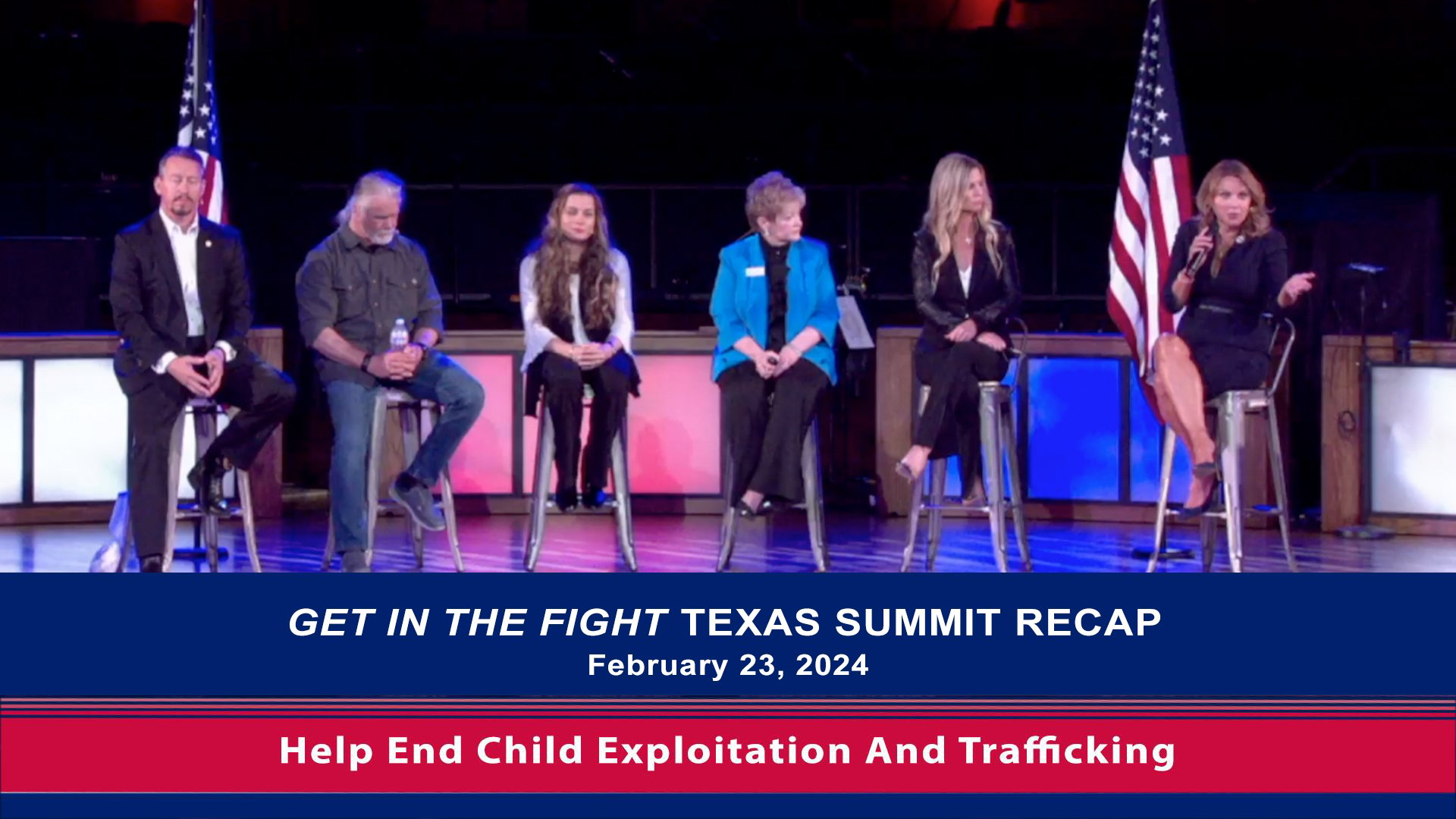Child Abduction
Summary: Any person who intentionally conceals, detains or removes a child without the consent of the mother or legal guardian or intends to obstruct or prevent efforts to location a victim of child abduction or knowingly alters, conceals or disguises physical evidence or produces false information.
Luring of a Minor
Summary: A person may be found guilty of luring a minor if they knowingly contact or communicate electronically to a minor under 15 years with the intent to lure the minor away from their home for an unlawful purpose without, and have the intent to avoid, the express consent of the legal guardian. Communication in furtherance of employment is allowed.
Aiding or Abetting Child Abduction
Summary: Anyone who aids or abets in Child Abduction may be found guilty of a Class 4 felony.
Failure to Report the Death or Disappearance of a Child under 13 years of age
Summary: A person responsible for a child under 13 years of age who dies or disappears and fails to report such event within 24 hours may be found guilty of a Class 4 felony. If the child is under 2 years, the reporting period is 1 hour.
Criminal Sexual Assault
Summary: If a person engages in sexual penetration and uses threat of force, knows the victim is unable to understand the nature of the act or is unable to give knowing consent, the actor is a family member of the victim is a minor, or the actor is at least 17 and holds a position of trust or authority over the victim and the victim is between 13 and 18, then the person commits Criminal Sexual Assault.
In certain instances, an offender can be sentenced to between 30 and 60 years in prison.
Aggravated Criminal Sexual Assault
Summary: A person commits in aggravated criminal sexual assault if they commit criminal sexual assault and any of the following aggravating circumstances exist:
- Person displays or threatens to use a dangerous weapon, other than a firearm, that leads the victim reasonably believes that the object is a dangerous weapon
- Person causes bodily harm to the victim
- Person acts in a manner that threatens or endangers the life of the victim or another person
- Person commits the criminal sexual assault during the course of committing or attempting to commit another felony
- Victim is 60 or older
- Victim is a person with a physical disability
- Person delivers any controlled substance to the victim without the victim’s consent or by threat or deception
- Person is armed with a firearm
- Personally discharges a firearm during the commission of the offense
- Person discharges a firearm during the commission of the offense and that discharge proximately causes great bodily harm, permanent disability, permanent disfigurement, or death to another person.
A person commits aggravated criminal sexual assault if the person is under 17 and:
- Commits an act of sexual penetration with a victim under 9 years old, or
- Commits an act of sexual penetration with a victim between 9 and 13 and the person uses force or threat of force to commit the act.
A person commits aggravated criminal sexual assault if the person engages in sexual penetration with a victim who is a person with a severe or profound intellectual disability. An offender who commits this crime with certain aggravating circumstances can have 25 years to life are added to their sentence.
Predatory Criminal Sexual Assault of a Child
Summary: A person can be found guilty of Predatory Criminal Sexual Assault of a Child if the offender is 17 or older and commits an act of contact between the sex organs and the part of the body of another for the purpose of sexual gratification or arousal of the victim or the accused, or an act of sexual penetration, and the victim is under 13 or the victim is under 13 and the offender:
Is armed with a firearm
- Personally discharges a firearm during the commission of the offense
- Causes great bodily harm to the victim that results in permanent disability or is life threatening, or
- Delivers any controlled substance to the victim without the victim’s consent or by threat or deception, for other than medical purposes.
An offender can be found guilty of a Class X felony and, depending on how the law is violated, punished between 6 and 60 years, subject to enhancements.
Criminal Sexual Abuse
Summary: A person commits criminal sexual abuse if that person commits an act of sexual conduct by the use of force or threat of force or that person knows that the victim is unable to understand the nature of the act or is unable to give knowing consent.
A person commits criminal sexual abuse if that person is under 17 and engages in sexual penetration or sexual conduct with a victim who is between 9 and 17 years of age.
A person commits criminal sexual abuse if that person is between 13 and 17 and the person is less than 5 years older than the victim.
An offender can be found guilty of a misdemeanor or felony, depending of the facts and circumstances.
Aggravated Criminal Sexual Abuse
Summary: A person can be found guilty of aggravated criminal sexual abuse if that person commits criminal sexual abuse and if any of the following aggravating circumstances exist:
- Person displays or threatens to use a dangerous weapon, other than a firearm, that leads the victim reasonably believes that the object is a dangerous weapon
- Person causes bodily harm to the victim
- Victim is 60 or older
- Victim is a person with a physical disability
- Person acts in a manner that threatens or endangers the life of the victim or another person
- Person commits the criminal sexual assault during the course of committing or attempting to commit another felony
- Person delivers any controlled substance to the victim without the victim’s consent or by threat or deception
A person can be found guilty of aggravated criminal sexual abuse if that person engages in sexual conduct with a victim under the age of 18 years of age, who is a minor and the person is a family member.
A person is guilty of aggravated criminal sexual abuse if:
1. That person is 17 or older and commits an act of sexual conduct with a victim under 13 or with a victim between 13 and 17 and the person uses force or threat of force
2. That person is under 17 and commits an act of sexual conduct with a victim under 9 or or with a victim between 9 and 17 and the person uses force or threat of force
A person is guilty of aggravated criminal sexual abuse if they commit an act of sexual penetration or conduct with a victim between 13 and 17 and the person is at least 5 years older than the victim.
A person is guilty of aggravated criminal sexual abuse if they engage in sexual conduct with a person with a severe or profound intellectual disability, the victim is under 17 and the actor is over 18 and holds a position of authority over the victim.
Any offender of aggravated criminal sexual abuse is guilty of a Class 1 or 2 felony, depending on which subsection offender is violated.
Indecent Solicitation of a Child
Summary: A person over 17 commits indecent solicitation of a child if the person, with the intent to commit Criminal Sexual Assault, Aggravated Criminal Sexual Assault, Predatory Criminal Sexual Assault of a Child, Criminal Sexual Abuse, or Aggravated Criminal Sexual Abuse, knowingly solicits a child or one whom he or she believes to be a child to perform an act of sexual penetration or sexual conduct.
A person over 17 commits indecent solicitation of a child if the person knowingly discusses an act of sexual conduct or penetration with a child or with one they believe to be a child by means of the Internet with the intent to commit Criminal Sexual Assault, Aggravated Criminal Sexual Assault, Predatory Criminal Sexual Assault of a Child, Criminal Sexual Abuse, or Aggravated Criminal Sexual Abuse.
An offender can be found guilty of either a Class 1, 2, 3, or 4 felony depending on what crime was intended.
CLICK TO READ LAW 720 ILCS 5/11-6.5
Summary: A person commits Indecent Solicitation of an adult if the person knowingly:
- Arranges for a person 17 or older to commit an act of sexual penetration with a person under 13 or between 13 and 17, or
- Arranges for a person 17 or older to commit an act of sexual conduct with a person under 13 or between 13 and 17.
This crime can be a misdemeanor or felony, depending on the ages of those involved in the crime.
Solicitation to Meet a Child
Summary: A person 18 or older who uses an electronic device with the intent to meet a child or someone they believe to be a child, solicits the child to meet at a location without the knowledge of the child’s lawful guardian for an unlawful purpose.
Generally, an offender is guilty of a Class 4 felony if the solicitor is 5 years or older than the child. Otherwise, it is a Class A misdemeanor.
Unlawful Sale of a Public Conveyance Travel Ticket to a Minor
Summary: Anyone who sells a travel ticket for a public conveyance to an unemancipated minor under 17 years old to a destination outside of Illinois and without the consent of the minor’s parents or guardian may be found guilty of a Class C misdemeanor.
Unlawful Sending of a Public Conveyance Travel Ticket to a Minor
Summary: Anyone who sends a travel ticket or knowingly arranges travel on a public conveyance to an unemancipated minor under 17 years old to a destination outside of Illinois and without the consent of the minor’s parents or guardian is guilty of a Class C misdemeanor. If the offender is at least 5 years older than the minor, the offender may be found guilty of a Class 4 felony.
The severity of this crime and others listed for the State of Illinois, of which a defendant may be charged with may vary. For example, a defendant’s prior conviction of a similar crime may subject the defendant to a higher and more serious degree of Felony. Also, if the defendant is found guilty, factors such as past criminal history, affect the severity of the sentence. However, in certain situations, mandatory minimum sentencing may set forth a minimum sentence or other punishment that must be served irrespective of the defendant’s circumstances.
Sexual Exploitation of a Child
Summary: A person commits sexual exploitation of a child if in the presence of a child and with knowledge that a child or one who they believe is a child would view the acts, the person engages in a sexual act or exposes their sex organs for the purpose of sexual arousal or gratification of that person or the child.
A person violates the law if they knowingly entice a child to remove the child’s clothes for the purpose of sexual arousal or gratification of the person or child or both.
This crime can be a Class A misdemeanor, or a Class 4 felony if the victim was under 13 or by someone 18 or older and is either on or within 500 feet of elementary or secondary school grounds.
A subsequent violation is a Class 4 felony.
Permitting Sexual Abuse of a Child
Summary: If a person has actual knowledge of and permits an act of sexual abuse upon the child or permits the child to engage in prostitution is guilty of Permitting Sexual Abuse of a Child.
An offender can be found guilty of a Class 1 Felony.
Failure to Report Sexual Abuse of a Child
Summary: Any person over 18 and knowingly fails to report sexual abuse of a child to law enforcement when they personally observe the sexual abuse between someone who is over 18 and anyone under 13 can be found guilty of a misdemeanor or a felony.
Custodial Sexual Misconduct
Summary: A person is guilty of Custodial Sexual Misconduct when:
- They are an employee of a penal system and engages in sexual conduct or penetration with a person who is in the custody of that system
- They are an employee of a treatment and detention facility and engages in sexual conduct or penetration with a person who is in the custody of that treatment and detention facility
- They are an employee of a law enforcement agency and engages in sexual conduct or penetration with someone who is in the custody of a law enforcement agency or employee.
Presence of Sex Offenders in Prohibited Areas
Summary: The following are unlawful:
- For a child sex offender to knowingly be present in any building owned by a school when minors are present in the building, unless the offender is a parent or guardian who is subject to several conditions.
- For a child sex offender to knowingly be present within 100 of a pick-up/discharge stop for school transportation when minors are present.
- For a child sex offender to knowingly be present in any public park building or playground unless the offender is a parent or guardian who is present.
- For a child sex offender to knowingly loiter within 500 of school buildings or property while minors are present, unless the offender is a parent or guardian who is subject to several conditions.
- For a child sex offender to knowingly reside within 500 feet of any school building or property, any public park building or playground, child daycare or other similar institution, residence of the victim of the sex offense
- For a child sex offender to knowingly communicate with a child or someone they believe to be a child for an unlawful purpose
- For a child sex offender to knowingly operate or manage a facility that provides programs or services directed toward minors
- For a child sex offender to knowingly participate in a holiday event involving minors
- For a child sex offender to knowingly operate or manage an amusement enterprise
- For a child sex offender to knowingly own and reside at residential real estate to knowingly rent any unit to a person who is the legal custodian of a minor.
- For a child sex offender to knowingly offer or provide any programs or services to minors.
- For a child sex offender to knowingly operate certain vehicles.
An offender can be found guilty of a Class 4 felony
Presence of Sex Offenders in or near Public Parks
Summary: It is unlawful for a sexual predator or a child sex offender to knowingly be present or loiter in any public park building or property or on a public way within 500 feet of a public park building or property.
An offender can be found guilty of a Class A misdemeanor. A subsequent offense is a Class 4 felony.
Sexual Misconduct with a Person with a Disability
Summary: A person who knowingly engages in sexual conduct or penetration with a person with a disability who is under the care and custody of the DHS at a State-facility; or a person who is an employee of a community agency funder by DHA and knowingly engages in sexual conduct or penetration with a person with a disability who is in a residential program operate by a community agency; can be found guilty of a Class 3 felony and immediately forfeits their employment with the State or the community agency, if found guilty.
Trafficking in Persons, Involuntary Servitude, and Related Offenses
Summary: To cause someone to engage in involuntary servitude can be either a Class X, 1, 2, 3, or 4 felony depending on how involuntary servitude is propagated.
A person commits involuntary sexual servitude of a minor if they knowingly obtain, by any means, a minor, knowing that they will engage in commercial sexual activity, a sexually-explicit performance, or the production of pornography. An offender is guilty of either a Class X or Class 1 felony depending on the minor’s age.
A person commits human trafficking when they obtain, by any means, another person and knows that they will be subjected to involuntary servitude or financially benefits from the trafficking of persons. An offender is guilty of a Class 1 felony. An offending company may be liable for a fine up to $100,000.
If a person commits any one of these violations through kidnapping, attempt to kidnap, aggravated criminal sexual assault, or an attempt to commit aggravated criminal sexual assault, or an attempt to commit first degree murder, the offender may be found guilty of a Class X felony.
An offender is required to pay the victim the greater of the gross income or value of the victim’s services or the value of the victim’s labor guaranteed under the Minimum Wage Law and overtime under Fair Labor Standards Act or the Minimum Wage Law, whichever is greater. Offenders are also subject to criminal property forfeiture.
Sexual Relations Within Families
Summary: A person who commits an act of sexual penetration with a family member and knows that they are related to the other person by either sibling, blood or half-blood, adopted child, stepparent/stepchild, aunt/uncle, or grandparent can be found guilty of committing sexual relations within families.
An offender can be found guilty of a Class 3 felony.
Prostitution
Summary: Any person who knowingly performs, offers, or agrees to perform any act sexual penetration for anything of value, or any touching of the sex organs of one person by another person, for the purpose of sexual arousal or gratification commits an act of prostitution.
An offender can be found guilty of a Class A misdemeanor.
Summary: Any person who offers a person who is not their spouse anything of value to perform any act of sexual penetration or any touching or fondling of sex organs of one person by another for the purpose of sexual arousal or gratification, is guilty of Solicitation of a Sexual Act.
Solicitation of a Sexual Act from an adult to a person with intellectual disabilities is a Class 4 felony.
Promoting Prostitution
Summary: Any person who knowingly performs any of the following are guilty of promoting prostitution:
- Advances prostitution
- Profits from prostitution by:
a. Compelling a person to become a prostitute
b. Arranging or offering to arrange a situation in which a person may practice prostitution
c. Any other means from a person who patronizes a prostitute
An offender can be found guilty a felony.
Promoting Juvenile Prostitution
Summary: Any person who knowingly performs any of the following is guilty of promoting juvenile prostitution:
- Advances prostitution with a minor or a person with an intellectual disability involved
- Profits from prostitution by any means where the prostituted person is a minor or an intellectual disability
- Profits from prostitution by any means where the prostituted person is under 13
- Confines a minor with an intellectual disability against their will by the infliction or threat of imminent infliction of bodily harm or permanent disability
An offender found guilty can be punished from 6 to 60 years in prison. Any offender is subject to property forfeiture.
Summary: Any person who knowingly performs the following are guilty of patronizing a prostitute:
- Engages in an act of sexual penetration with a prostitute
- Enters or remains in a place of prostitution with intent to engage in an act of sexual penetration, or
- Engages in any touching or fondling with a prostitute of the sex organs of one person by the other person, with the intent to achieve sexual arousal or gratification.
An offender can be found guilty of a felony.
Patronizing a Minor engaged in Prostitution
Summary: A person is guilty of Patronizing a Minor engaged in prostitution if they engage in an act of sexual penetration with a minor engaged in prostitution or is a person with a severe intellectual disability or engages in the touching or fondling with a minor engaged in prostitution.
An offender can be found guilty of a felony.
Obscenity
Summary: An offender of obscenity with knowledge of the nature or content or recklessly failing to exercise reasonable inspection which would have disclosed the nature or content, he or she:
- Sells, delivers or provides, or offers or agrees to provide any obscene writing, picture, record, or other representation or embodiment of the obscene
- Presents or directs an obscene performance or participates directly in that portion thereof which makes it obscene,
- Publishes anything obscene,
- Performs an obscene act or exhibition
- Creates obscene matter or material with intent to disseminate it, or
- Advertises or otherwise promotes the sale of material represented as obscene
Child Pornography
Summary: An offender commits child pornography if they:
- Films or portrays any child whom he or she knows or reasonably should know to be a minor or any person with an intellectual disability,
- Reproduces any medium that depicts a child or person with a severe intellectual disability known or should have been known to be a minor, or
- Produces any material that depicts a child or person with a severe intellectual disability known or should have been known to be a minor, or
- Solicits or uses a minor or a person with an intellectual disability in a performance
- Are a parent or legal guardian of a minor or a person with an intellectual disability who permits the acting in a performance
- Records a minor or a person with an intellectual disability involved in certain activity
- Solicits or uses a minor or a person with an intellectual disability to appear in a medium in which the performer will be depicted, actually or by simulation.
An offender can be found guilty of up to a Class X felony and is subject to fines between $2,000 and $100,000.
Duty of Commercial Film and Photographic Print Processors or Computers Technicians to Report Sexual Depiction of Children
Summary: Any commercial medium processor or computer technician who has knowledge of or observes any medium which depicts a child whom the person knows or reasonably should know to be a minor where such child is:
- Actually or by simulation engaged in any act of sexual penetration or conduct
- Actually or by simulation engaged in any act of sexual penetration or conduct involving the sex organs of the minor
- Actually or by simulation engaged in any act of masturbation
- Actually or by simulation portrayed as being the object, of any act of fondling, touching, or caressing
- Actually or by simulation engaged in any act of excretion or urination within a sexual context
- Actually or by simulation portrays or depicts BDSM
- Depicts or portrays sex organs
Shall report to local law enforcement or other appropriate authorities. Failure to report can result in a $1,000 fine.
Harmful Material
Summary: A person commits distribution of harmful material to a minor when they knowingly gives to a minor, any material that contains BDSM material or admits a minor to a premises where harmful material is being shown.
An offender can be found guilty of a misdemeanor or felony.
Tie-In Sales of Obscene Publications to Distributors
Summary: Any person or business or any agent thereof, engaged in the distribution of publications who refuses to do business with other dealers to furnish material that normally contains obscene material is guilty of a petty offense.
Posting of Identifying or Graphic Information on a pornographic Internet Site or Possessing Graphic Information with Pornographic Material
Summary: A person at least 17 years olde who knowingly discloses on an adult obscenity or child pornography website the personal information of another person 17 years or older without their consent is guilty of this crime.
An offender can be found guilty of a felony.
Non-Consensual Dissemination of Private Sexual Images
Summary: A person commits non-consensual dissemination of private sexual images when they:
1. Intentionally disseminates an image of another person who is either:
a. At least 18 years old, and
b. Identifiable from the image itself or information displayed in connection with the image, and
c. Engaged in a sexual act or whose intimate parts are exposed, in whole or in part, and
2. Obtains the image under circumstances in which a reasonable person would know or understand that the image was to remain private, and
3. Knows or should have known that the person in the image has not consented to the dissemination.
An offender can be found guilty of a felony.
Child Pornography by Sex Offender
Summary: It is unlawful for a child sex offender to knowingly:
- Conduct or operate any type of business in which they record an image of a child, or
- Conduct or operate any type of business in which they instruct or direct another person to record an image of a child, or
- Record or instruct another to record an image of a child without the consent of the parent or guardian.
An offender can be found guilty of a felony.
Grooming
Summary: Any person who knowingly uses a computer on-line service or another online service or performs an act in person or attempt to solicit a child’s legal guardian to commit any sex offense to distribute photos depicting the sex organs of the child or with another person believed by the person to be a child.
An offender can be found guilty of a felony.
Transmission of Obscene Messages
Summary: A person transmits of obscene messages when they send messages or uses language or terms which are obscene, lewd or immoral with the intent to offend by means of using a communications device that transmits news or messages between states or within the State.
Harassment by Telephone
Summary: A person harasses via a phone if they either:
- Make any comment which is obscene, lewd, lascivious, filthy or indecent with an intent to offend
- Make a call with intent to abuse, threaten or harass any person
- Make or cause another’s phone to repeatedly ring with intent to harass any person
- Make repeated calls, during which conversation ensues, solely to harass any person
- Make a call or knowingly induce a person to make a call for the purpose of harassing another who is under 13 years or old, regardless of consent, if the defendant is at least 16, or
- Knowingly permits any phone under one’s control to be used for any of the above purposes
Traveling to Meet a Child
Summary: A person who travels or attempts to travel for the purpose of engaging in any sex offense or other unlawful sexual conduct with a child or with a person believed by the person to be a child.
An offender can be found guilty of a felony.
Harassment through Electronic Communications
Summary: A person harassment through electronic communication if they use the Internet for any of the following purposes:
- Make a comment which is obscene with an intent to offend
- Interrupt, with the intent to harass, the phone or electronic service of any person
- Transmit to any person, with the intent to harass and prevent a person from using their electronic device
- Transmit an electronic or knowingly inducing a person to transmit for the purpose of harassing minors
- Threaten injury to the person or to the property of the person to whom an electronic communication is directed or to any relative of the person
- Knowingly permitting any electronic communications device to be used for any of the above purposes.
















